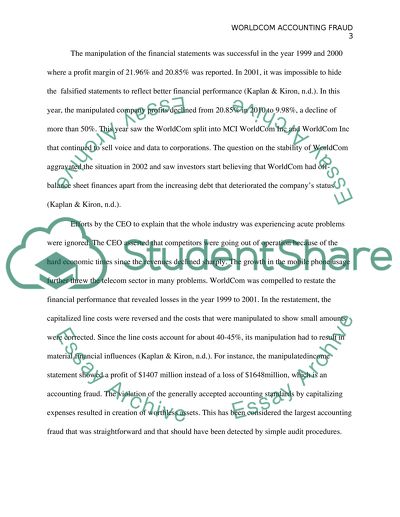Cite this document
(“WORLDCOM ACCOUNTING FRAUD Essay Example | Topics and Well Written Essays - 2250 words”, n.d.)
Retrieved from https://studentshare.org/law/1397621-accountant-s-legal-liability-and-ethics-worldcom
Retrieved from https://studentshare.org/law/1397621-accountant-s-legal-liability-and-ethics-worldcom
(WORLDCOM ACCOUNTING FRAUD Essay Example | Topics and Well Written Essays - 2250 Words)
https://studentshare.org/law/1397621-accountant-s-legal-liability-and-ethics-worldcom.
https://studentshare.org/law/1397621-accountant-s-legal-liability-and-ethics-worldcom.
“WORLDCOM ACCOUNTING FRAUD Essay Example | Topics and Well Written Essays - 2250 Words”, n.d. https://studentshare.org/law/1397621-accountant-s-legal-liability-and-ethics-worldcom.


